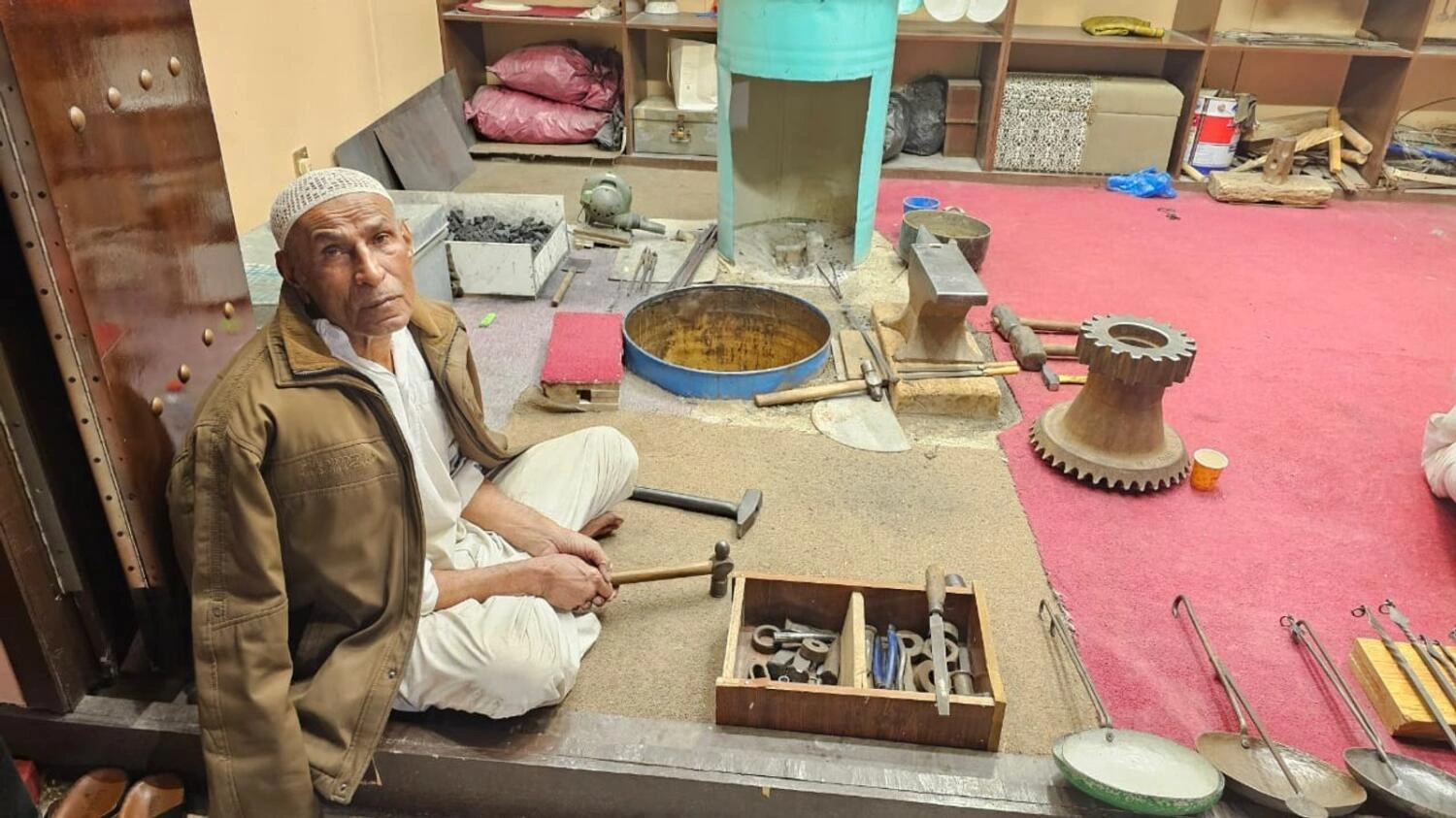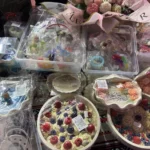The hands of Syed Murad tell a story of decades spent crafting iron and steel into functional tools. Now 85, Murad remains dedicated to his craft as a blacksmith, a passion he inherited from his father and has cherished for a lifetime.
“All my friends have called me ‘Iron Man’ since childhood, and the name stuck,” Murad shared proudly from his shop, Al Haddad Syed (Blacksmith Syed), located in the Heritage Village at Global Village.
Since Global Village began in 1997 at Dubai Creek, Murad and his son, Syed Hassan, have showcased their traditional blacksmithing techniques to visitors from around the world.
“It was a smaller setup back then,” Murad recalled. “We brought everything from our workshop in Ajman to sell here. Now, at the current location, we even shape and mold metal on-site.”
The Beginning of a Lifelong Passion
Murad’s journey started early. At just five years old, he didn’t play with toys but worked with raw metals, accompanying his father to the workshop in Ajman.
By seven, Murad had joined the trade, learning to craft essential items like hinges, shackles, and anchors for traditional boats. “Parts for boats were in huge demand back then,” Murad said. “I felt proud to be part of such important work. It was the top job for a blacksmith.”
Determined and ambitious, Murad told his father he would run his own business one day. By 18, he had saved enough to start a family and launch his own workshop.
Mastering the Craft
Over the years, Murad honed his skills, crafting farming tools like hoes, rakes, and weeding knives. He also became an expert in making the das, a traditional sickle with a curved, serrated blade.
“There are two types of das, one for harvesting and another for palm tree harvests,” he explained.
Creating these tools is a meticulous process. “We melt iron over a charcoal fire, make it malleable, and hammer it into shape on a metal block called a ‘sinda,’” Murad explained. A single piece can take over five days to complete.
Murad is especially proud of his knives, made using age-old techniques. The process involves heating metal in a coal-fired forge, shaping it, cooling it in water, and hardening it in oil. “It takes three days, but the quality is unmatched,” he said.
Even the wooden handles require precision. Murad uses strong woods like walnut or rosewood, shaping them with sandpaper until they fit perfectly. Depending on the design, this process can take several hours to a couple of days.
Passing Down the Legacy
Though Murad’s craftsmanship is exceptional, sales have slowed at both his Ajman workshop and Global Village. “People prefer machine-made products from markets,” he said. “But handmade tools have a story and soul—they’re more than just tools.”
Despite the challenges, Murad remains dedicated. “This is my life. I’ll keep working as long as I can,” he said with pride.
His son, Syed Hassan, shares this passion and admires his father deeply. “He’s my role model,” Hassan said. “Even at 85, he works harder than anyone I know. He always says, ‘If your hands stop working, your heart stops living.’”
“It’s My Identity”
For Murad, blacksmithing is more than a job—it’s his identity. “I’m not just shaping metal; I’m shaping a legacy,” he said. Hassan is equally committed to continuing this tradition. “I want to keep his work alive and pass it down to future generations,” Hassan said, standing proudly beside his father.
Murad’s story is a testament to passion, perseverance, and the timeless value of craftsmanship.





